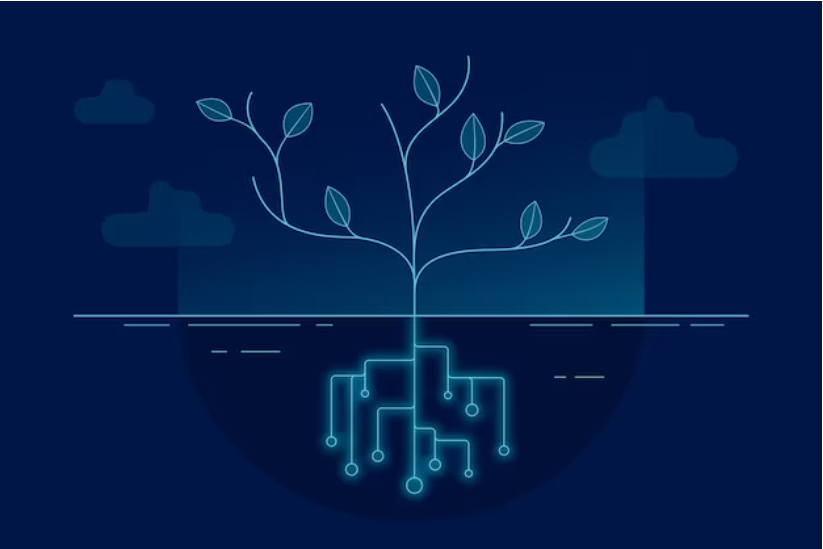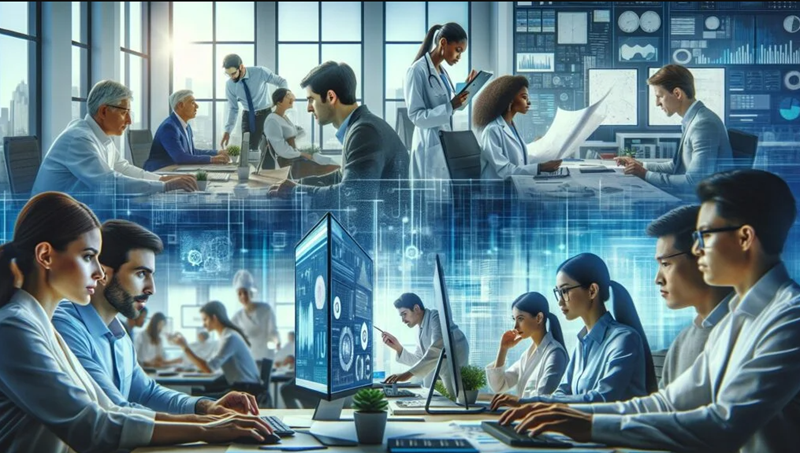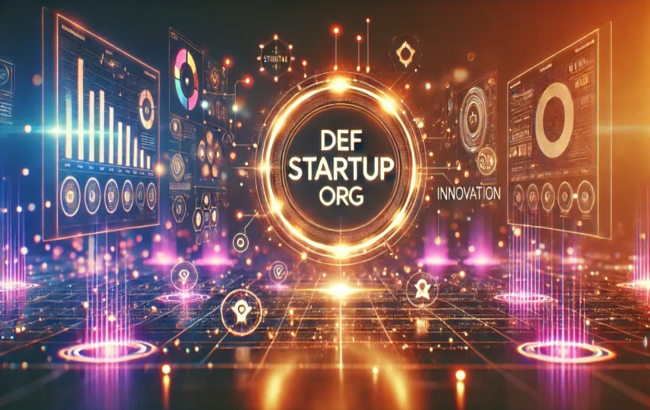Artificial intelligence (AI) is frequently portrayed as a sci-fi movie-style futuristic technology. However, the reality is that it has already arrived and is profoundly altering how we work and live today in ways that we could not have predicted even a few years ago. AI is transforming the technology industry in a variety of ways, including by automating monotonous processes and enhancing decision-making. In this blog post, we’ll look at 5 ways that artificial intelligence (AI) is changing the game and improving (and occasionally even improving) our lives.
Before anything else, let’s dispel a myth about artificial intelligence (AI): it’s not only about robots taking over the world, though that would be quite great. AI is a vast field that includes a range of technologies and applications, from straightforward algorithms to intricate systems that have the capacity for independent thought and learning. It’s not just about building robots that can mimic human intelligence; it’s also about building robots that can outperform it. Additionally, new employment must be created in addition to those that are being replaced. In other words, AI is revolutionising how we use technology, and it isn’t just a thing of science fiction anymore.
Automated completion of routine chores
One of the most significant ways AI is transforming the technological world is through this. Imagine having to respond to the same customer service questions again for hours at a time or entering data into a spreadsheet. I know, it’s mind-numbing. That’s when AI comes into play. Companies and industries may automate a wide range of jobs with the aid of AI, from straightforward data entry to more intricate procedures like customer service and financial analysis. This entails that firms may concentrate on more crucial elements of their operations while saving time, money, and effort that would have been squandered on repeated chores.
Consider a retail business that uses chatbots with AI to respond to customer service concerns. These chatbots can react to frequent inquiries and requests in a timely and correct manner, freeing up human customer support employees to concentrate on more complicated problems. An additional instance is the banking sector, where AI is applied to automate financial analysis and report generation, enhancing the effectiveness and precision of financial decision-making.
AI can also be used to automate operations like scheduling, inventory monitoring and management, and even hiring choices. Additionally, it can assist organisations in finding patterns and trends in their data that they might otherwise overlook, opening up fresh possibilities for development and innovation. Overall, organisations are becoming more efficient, spending less money, and concentrating on more crucial areas of their operations thanks to the automation of repetitive work using AI.
Better ability to make decisions
AI-powered systems are assisting businesses and organisations in making better decisions because they have the capacity to analyse enormous volumes of data and generate predictions with a high degree of accuracy.
AI is being utilised in the finance sector to spot and stop fraud, analyse financial data, and make wiser investment decisions. AI-powered systems, for instance, can examine transaction data patterns to find patterns of odd behaviour and flag it for further examination. This aids financial organisations in detecting and stopping fraud rapidly, helping them to save millions of dollars in the process.
AI is being utilised in healthcare to enhance patient outcomes and cut expenses. AI-powered devices can examine X-rays and MRI pictures to help doctors diagnose patients more precisely. Additionally, they can examine patient data to find trends that can point to a possible health issue, enabling doctors to take preventative measures.
AI-driven technologies are being utilised in retail to analyse customer data to personalise shopping experiences and increase sales. AI can be used, for instance, to analyse client information like purchase history, browsing habits, and search queries to suggest goods and deals that are more likely to be of interest to the customer.
By giving enterprises precise, trustworthy insights based on data analysis that they can act upon, AI is assisting industries in making better decisions. It’s not surprising that companies are beginning to use AI in their decision-making processes given that it produces better results, increases efficiency, and reduces costs.
Industry
Examples
Finance
Fraud: Recognising It and Preventing It Using financial data analysis to make wiser investment decisions
Healthcare
Analysis of medical pictures, cost reduction, patient data analysis, and better patient outcomes
Retail
Enhancing sales, personalising the shopping experience, and analysing client information
strengthening cybersecurity
The threat of cyber-attacks is now bigger than ever due to the growth in the amount of data being saved and exchanged online. By identifying and responding to possible cyber attacks in real-time, AI-powered systems can assist in addressing this issue. This can entail spotting and preventing dangerous software, spotting and preventing shady network activities, and spotting and preventing phishing efforts. AI-powered systems’ capacity to recognise and respond to cyber threats can be continuously improved by utilising machine learning algorithms and natural language processing. This adds an extra degree of security for both businesses and individuals, protecting critical data and systems from hackers and other cybercriminals.
Adapting our working practises
AI is revolutionising the IT sector. By automating tedious operations, analysing vast volumes of data, and offering useful insights, artificial intelligence (AI) is assisting in boosting productivity and efficiency. Employees are able to work smarter rather than harder as a result of being able to concentrate on more significant and creative tasks. Artificial intelligence (AI) is assisting in boosting production and efficiency across a variety of industries by eliminating the need for human labour and improving the speed and accuracy of decision-making.
The rise of remote work is one of the most major changes in how we work that is being driven by AI. Employees may collaborate and communicate easily from anywhere in the world using AI-powered tools and platforms. As a result, people may work from anywhere they wish and businesses are able to access a worldwide talent pool.
Additionally, AI is creating a need for new job types and expertise. There will be an increasing need for workers with expertise in disciplines like data analysis, machine learning, and natural language processing as AI takes over many repetitive and routine duties. This indicates that in order for people to remain competitive in the labour market, they will need to upskill and reskill. In order to assist their staff in acquiring these new abilities, employers will also need to make investments in training and development initiatives.
By boosting productivity and efficiency, enabling remote work, and generating new job opportunities, AI is revolutionising the way we work. In order to remain competitive in the upcoming years, it is critical for people and organisations to be informed about these developments and take action to adapt to them.
Read More You May Like:
- The ethics and safety concerns surrounding autonomous vehicles
- The Impact of AI on Society: Potential Benefits and Risks
- Exploring the Ethics of Artificial Intelligence: The Importance of Responsible AI Development
- AI in retail: how machine learning is changing the way we shop
- AI in Healthcare: How Machine Learning is Revolutionizing Medicine




